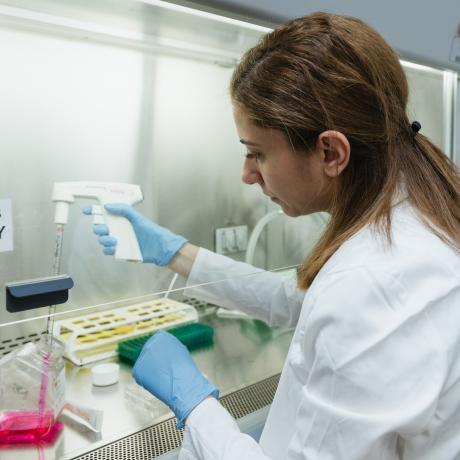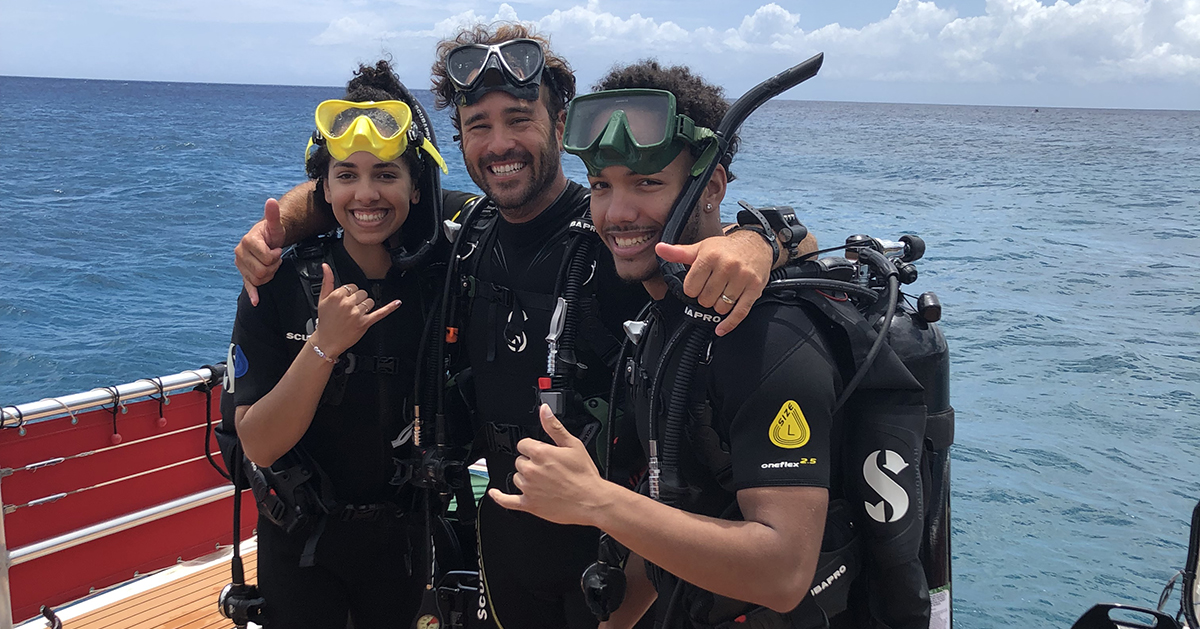A Trip to Remember
It was supposed to be a trip to remember—and it turned out to be a trip the 20-year-old Manchester resident will never forget. Christian and his sister were in Hawaii in June 2019 visiting an old family friend, who is a retired Navy Seal. “It’s always been my dream to go diving with him,” Christian said, “so we did. And I guess the sun and salt water must have gotten to me. I had been experiencing minor swelling and pain in my fingers and ankles on and off for a while, but when we came up to the surface, my ankles were severely swollen and extremely painful, and by the time we were ready to leave, I couldn’t even feel or move my middle fingers.”
The emergency department in Hawaii couldn’t figure out what was wrong, so they sent him home to Connecticut. His family doctor wasn’t sure either, but suggested important labs. “I had to get so many blood tests done,” he recalled. Finally, low kidney function brought him to Connecticut Children’s.
Caring for Christian
When he met with Barbara Edelheit, MD, Division Head of Rheumatology, he told her about the pain in his fingers and his diminished appetite. “I lost about 10 pounds,” he said, “and that was one of the signs.” Dr. Edelheit was concerned that Christian was developing lupus due to the constellation of abnormal labs, arthritis, weight loss and his poor kidney function. She spoke with the team in the Division of Nephrology, where nephrologist Sherene Mason, MD, arranged for a kidney biopsy to provide critical information as to the type of kidney involvement.
Christian’s story is unusual only because he’s male. Ninety percent of patients with lupus are female, and the disease is most prevalent in those of African or Latin-American descent, or in patients who are Asian or Native American. And, as with Christian, the most common symptoms are arthritis and kidney disorders. Then there is the distinctive facial rash that gives the disease its name: “Lupus” is Latin for “wolf,” and to the 13th-Century physician who first identified the disease, the rash—which typically stretches across the bridge of the nose and both cheeks—looked like a wolf bite.
But lupus can affect any organ or system in the body. “Kids with lupus vary a lot in how they present,” Dr. Edelheit said. “It can cause cognitive and neurologic problems; it can present as a cardiology issue. We had a young male with a lot of hair loss, fever and arthritis but no kidney involvement. It’s remarkable to think of all the varied combinations there can be. Kids come in with seizures, bleeding in their lungs, disorientation. Most people don’t think of strokes in a young person, but that can be their first presentation of lupus.”




